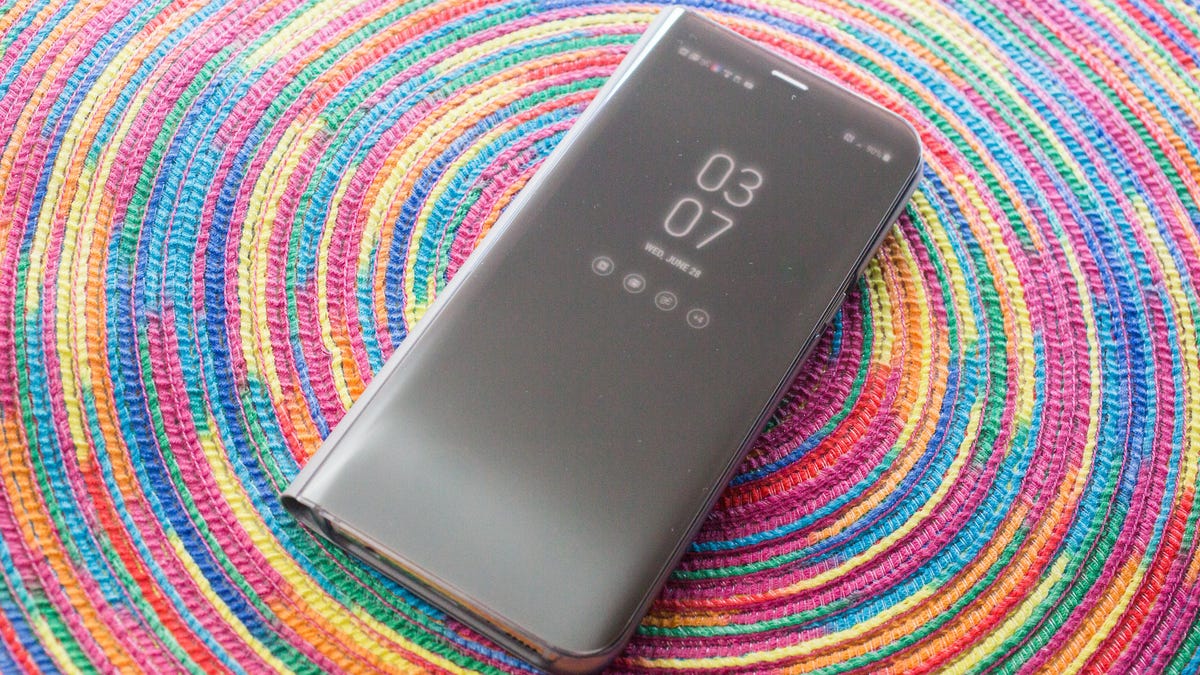Samsung won't unwrap its Siri rival in US anytime soon
Samsung tells the Korea Herald that the English-language version of its Bixby digital assistant is facing more delays.

Samsung's Bixby is still a no-show.
The consumer electronics giant told the Korea Herald on Tuesday that the English version of its digital assistant will be delayed -- again -- because it lacks enough big data to teach it to work properly. Bixby Voice was supposed to launch in late April before it was pushed back to "later this spring" and then to June. It's unclear when Bixby will launch.
Samsung did launch parts of Bixby in April in the US, including the "Vision, Home and Reminder" components that offer features like image recognition and home controls. But the central part of the service -- enabling a person to use voice to control and navigate Samsung's new Galaxy S8 phone -- is still only available in Korean.
The delayed launch of Bixby comes at a time when virtually all of the major tech companies are rolling out their own voice-activated digital assistants. Everyone from Apple to Google to Amazon sees speech as the next significant way to interact with your devices and is keen to develop a relationship with you. The hope is your loyalty to an assistant like Apple's Siri, Amazon's Alexa or Samsung's Bixby will better tie you to their products and services.
The Galaxy S8 and Galaxy S8 Plus is still missing a key feature.
Samsung faces entrenched competition. Amazon leads the market with nearly 71 percent share, thanks to its family of Echo speakers with Alexa, according to eMarketer. Google is No. 2 with almost 24 percent share due to its Google Home speaker with Google Assistant.
Creating a digital assistant that actually, well, assists you takes a lot of data and examples of human interactions. These assistants get smarter with only time and experience, and Samsung's delays underscore how complicated creating one can be.
Amazon has flooded the market with cheap Alexa-infused speakers over the past couple of years to get more people using its digital assistant. In its attempt to catch up, Google is relying on its treasure trove of data from billions of search queries to power Google Assistant. Microsoft's strategy is to add its Cortana digital assistant to all Windows 10 devices.
Six years after Siri launched on the iPhone 4S, Apple is just starting to make it more useful but the company has a base of millions of iPhone users to instantly tap.
Samsung doesn't have that luxury. When the Galaxy S8 phone launched in the US in late April, Bixby was notably missing, especially considering the time Samsung spent talking it up during the launch presentation. The Korea Herald said that early beta tests with US consumers showed mixed results.
Samsung on Friday reopened access to its beta program for US consumers.
"Samsung is continuing to dominate hardware, but once again its shortcomings in software and particularly artificial intelligence are laid bare for all to see," said Richard Windsor, an analyst at Radio Free Mobile.
The Korea Herald report, citing unnamed sources, also said that the complexities of US engineers communicating with management in Korea has led to slower progress than with the Korean-language version.
A Samsung spokeswoman declined to comment.
Samsung is pitching Bixby as a different kind of assistant, one that helps you make the most out of your phone. The idea is that Bixby will eventually jump over to Samsung's large family of smart products, including refrigerators and televisions.
At least in the near term, those plans have stalled out. Even on the Galaxy S8, there's already another helper -- Google Assistant -- that's accessible via a push of the home button.
You're even less likely to look to Bixby as companies start cranking out smart speakers with digital assistants. Apple plans to launch its own HomePod speaker with Siri during the holiday season. Samsung is reportedly building its own smart speaker too.
Fortunately for Samsung, Bixby likely isn't a factor for people looking to upgrade to the company's latest phone, which boasts a nearly bezel-less design and packs in a larger display.
The other good news for Samsung: A decent chunk of people continue to rate digital assistants as either "not good" or "terrible," so there's still time for Samsung to get its act together.
It just can't wait too long.
Originally published July 5 at 6:29 a.m. PT.
Updated July 5 at 7:50 a.m. PT and July 6 at 7:03 a.m. PT: Included additional background and a response from Samsung.
CNET Magazine: Check out a sample of the stories in CNET's newsstand edition.
Logging Out: Welcome to the crossroads of online life and the afterlife.

